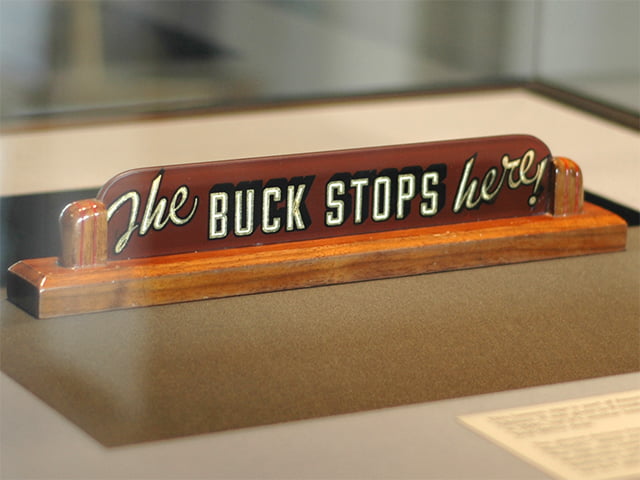Category: Politics
My grandpa used to say to me: “You have more excuses than Wrigley has chewing gum”. He grew up during the Great Depression, fought in World War II, supported 4 kids and a wife running a postal route, was a city councilman, et cetera, et cetera.
I can’t think of one time that I ever heard him complain or offer an excuse or fail to take responsibility for something that was brought to his attention — whether or not if it was his problem to begin with.
My life has been extravagantly decadent compared to his, but when I’ve been faced with adversity or failed at something I’ve always kept that saying of his in mind, and his example.
- If you’re held responsible for something that isn’t your fault; there’s no point whining about it — you’re already blamed. Clarify the situation and help solve it. Take steps to ensure it doesn’t happen again.
- If you’re in any position of leadership, the failures of any part of your team are your failures. The instant you shift blame, you’re a whiner, not a leader. Spreading blame is worse than a waste of time, it is counter-productive. Are you here to find a scape-goat or get some work done?
- Don’t complain that reality gets in the way of your goals. Don’t invent realities that justify your failures. Be humble, be honest, work hard, and know your capabilities.
- Admit your mistakes but don’t give up; have another idea ready at hand. Ask for help, guidance, or feedback.
- It’s okay to express frustration, but it should be done in private; and the next step after that is called “getting back to work.”
- The difference between an excuse and an explanation boils down to responsibility. An excuse avoids it, an explanation owns it.
When I have interactions with people who do not seem capable behaving in the manners described above, I feel pretty safe in assuming that they’ve never truly been held accountable to others & probably won’t be able to hack it when they finally are.
